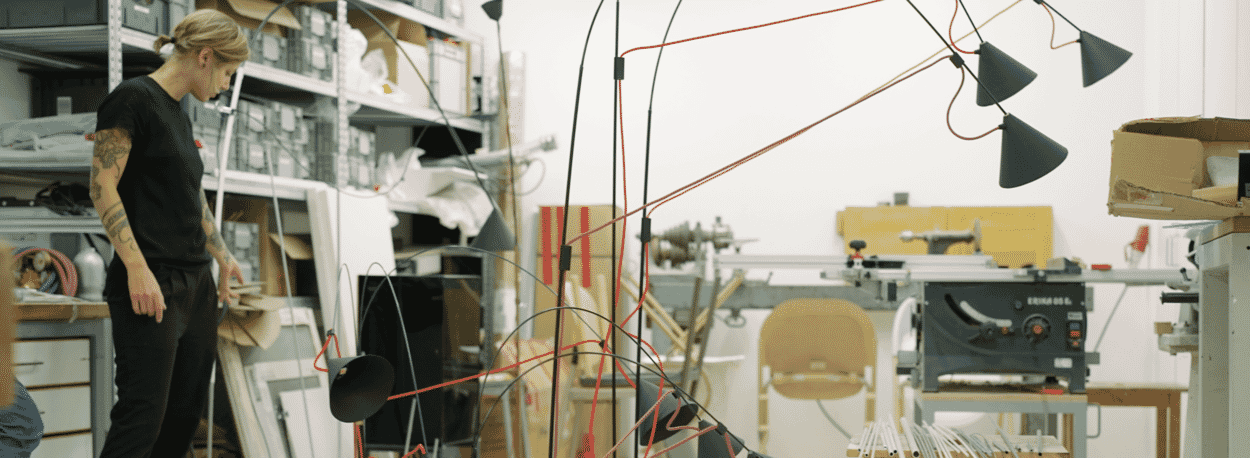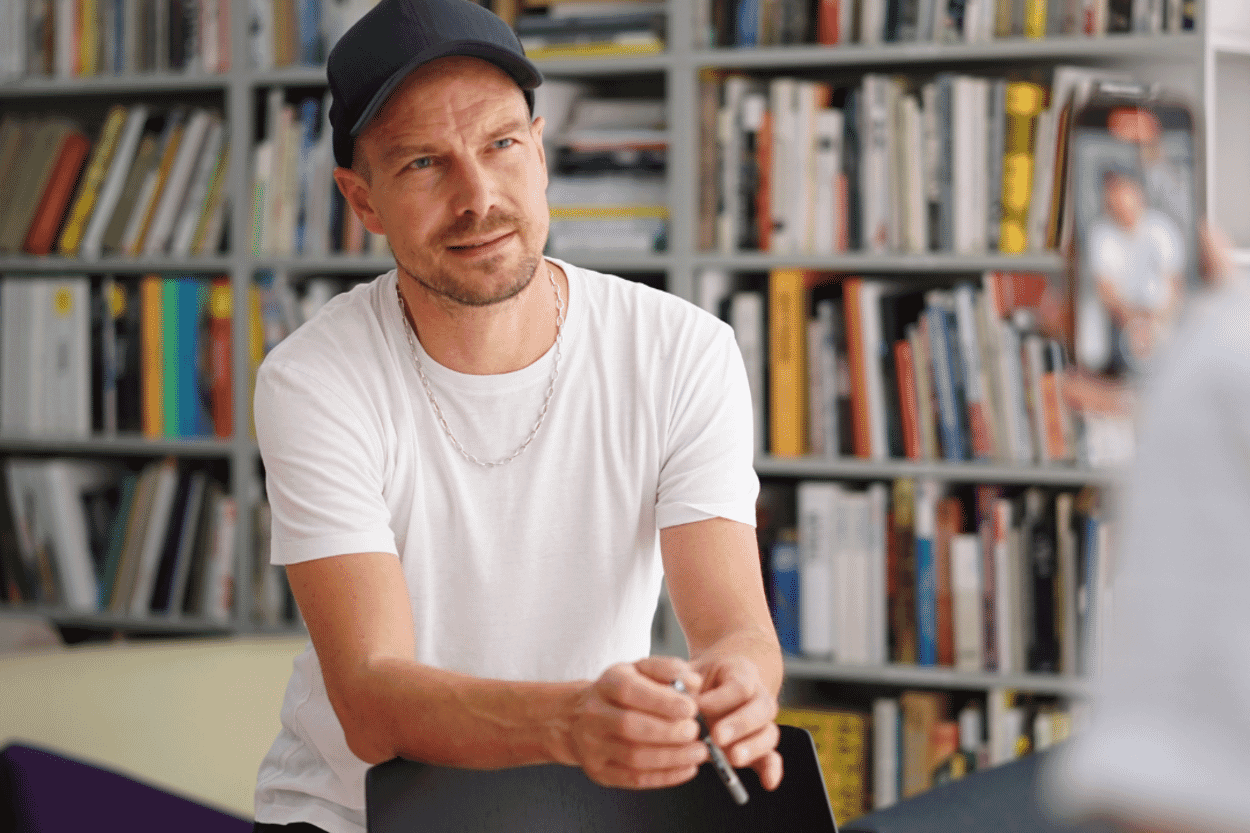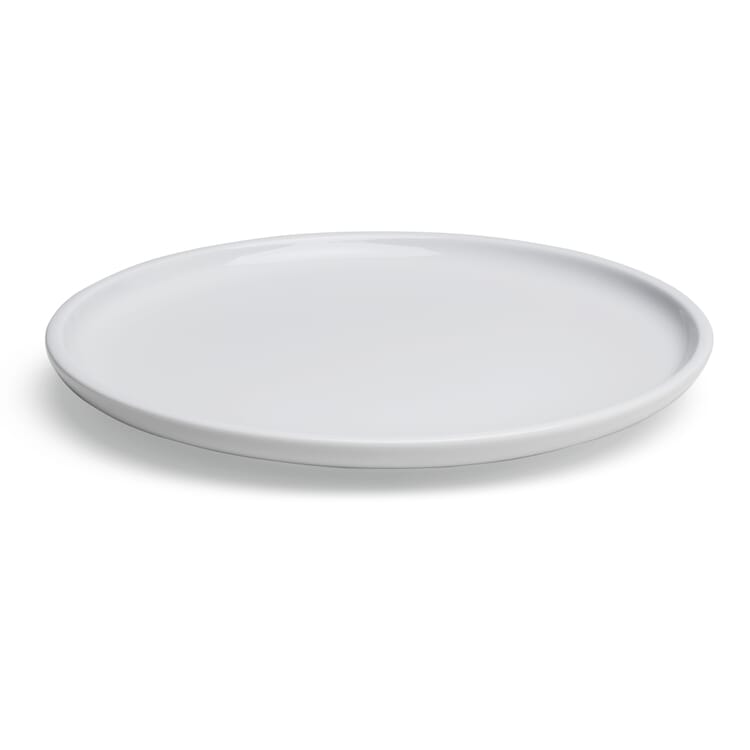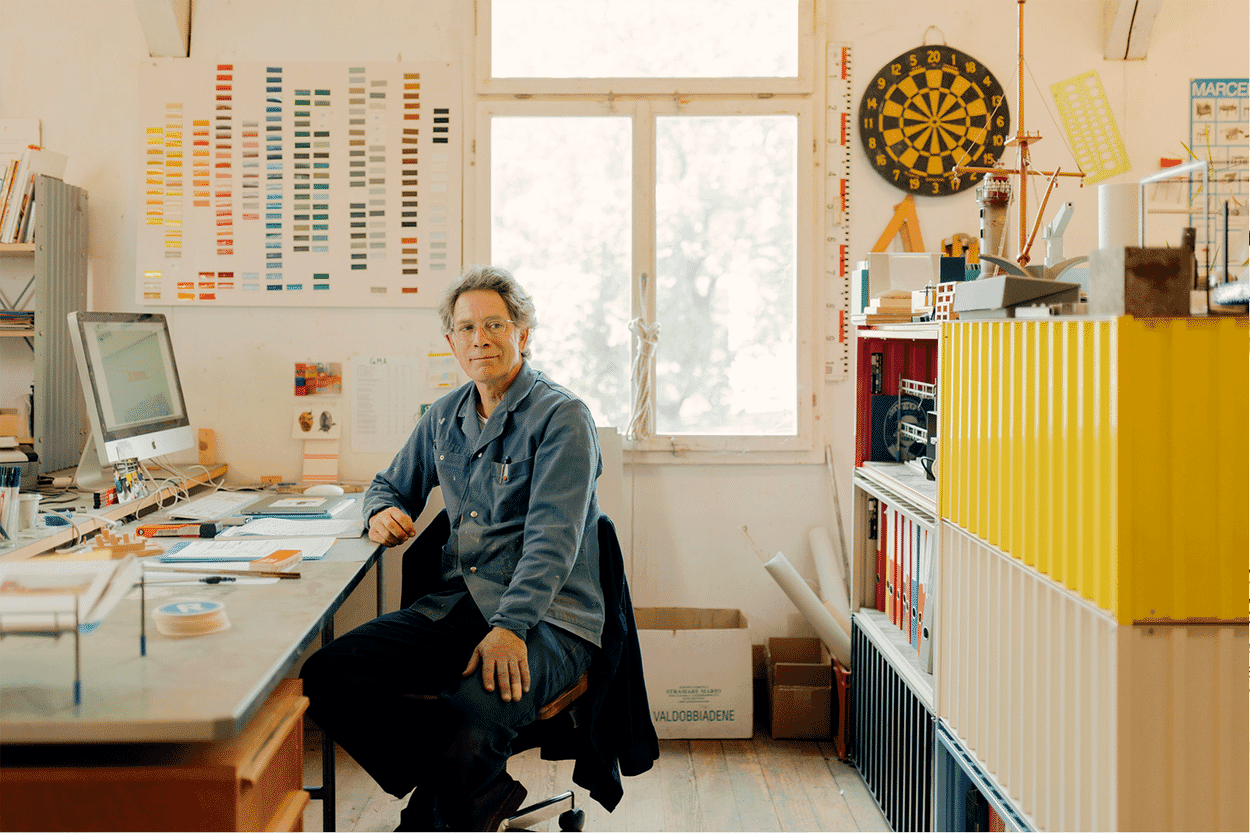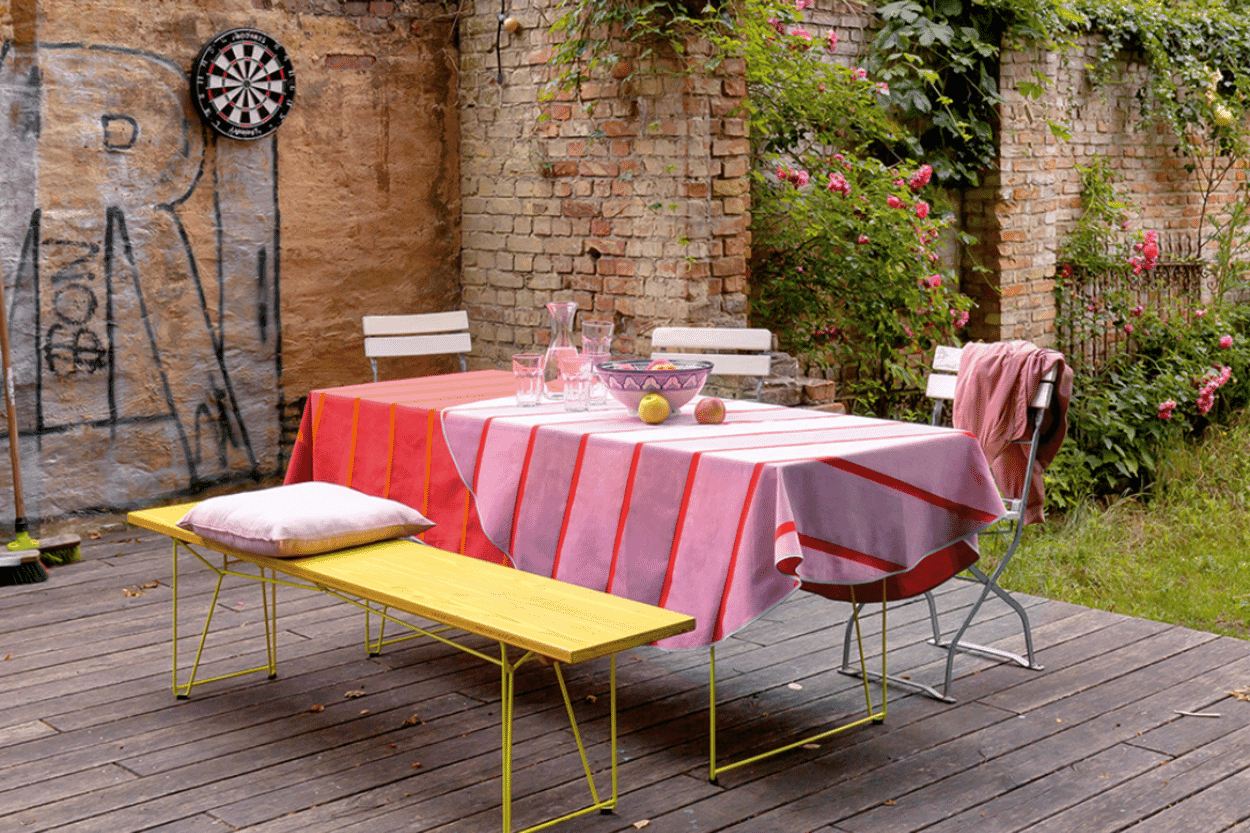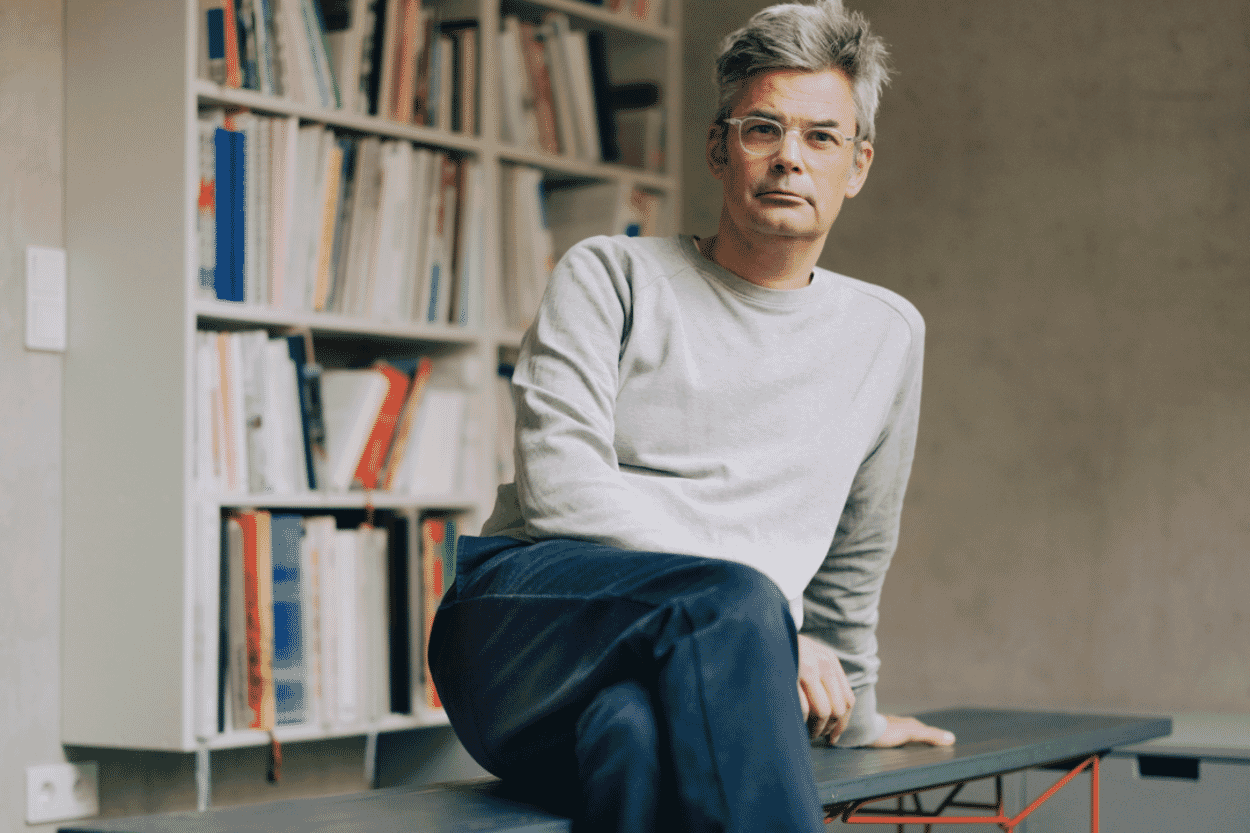Stefan Diez
There is a market that is not driven by price
Globalization, says Stefan Diez, is not a bad thing per se. But if it only leads to cheap production, it prevents innovation and destroys the know-how of local companies. The Munich-based designer is persistently looking for new approaches to product design - whether with designs for companies such as HAY, Magis and Wagner or his "10 guidelines for good design".
Interview: Jochen Overbeck
You founded your design studio 20 years ago. Was it an issue back then in which place things were produced?
I have always been interested in the subject. I grew up in a carpentry. I don't know how many trade fairs I went to with my father to look at the latest machines. My youth was shaped by one question: How can modern technologies also help German companies to manufacture economically
... which was not necessarily a common way of thinking back then ...
Until the end of the 1980s, production and consumption in Europe were relatively local. Of course there were internationally successful companies. But it was not a matter of course to get the latest Sony Walkman in Munich. Digitalization made it possible to separate the design and manufacturing processes. As a result, processes were set in motion that outsourced the actual production - often to China. A lot of mastery knowledge was lost in the process. Market share was secured by not being innovative, but by producing cheaply.
Your "10 guidelines for good design" are along similar lines, aren't they?
You can sell a sofa from Milan to New York. But you will hardly be able to export the knowledge of how to properly reupholster a sofa, for example. It would also be nonsense to send a sofa back at some point. That's a problem for the lifetime of these products. That's why, as designers, we have to think about repairing products that are sold globally.
STEFAN DIEZ
Stefan Diez completed a carpentry apprenticeship in his parents' business before studying industrial design at the Stuttgart State Academy of Art and Design from 1996. After working for Richard Sapper and Konstantin Grcic, he opened his own design studio in 2003. His range includes the COSTUME sofa, the AYNO lamp and the SHIRO tableware series at MAGAZIN.
Your COSTUME sofa for Magis is a good example. It can be completely dismantled and separated according to type. How long did the development take?
A good four years. But that's not an unusual length of time for us. We developed the product in the studio and prepared it very well for production; Magis did the finishing touches with the producer, always in consultation with us. During development, we considered issues such as the replacement of individual parts and the "preloved market" - now it's up to Magis to exploit the full potential and get it on the road.
Does this kind of collaboration develop the network of production facilities that you need as a designer over the years?
Yes. That's one advantage of being in southern Germany. We are close to Italy, but a lot of production still takes place here too. You have short distances and can get a few good wooden strips quickly. There is a fundamental difference between having something made locally and ordering something. With the latter, you have to know exactly what you need. When you work with a local manufacturer, you think you know what you need, but then you might find out that there's something completely different!
You're currently designing an e-bike for the bicycle manufacturer Möve ...
... which will be built in Europe! We want to explore whether we can put together a package that leads to a better product through new ideas and processes, through shorter distances between manufacturers and customers. We believe that there is a market that is not driven by price, but offers room for innovation; for bikes that do not connect A and B faster, but are more elegant, more beautiful, more sophisticated.
Pictures: © DIEZOFFICE
DESIGNED BY STEFAN DIEZ
Discover more designers
When Kuno Nüssli's Container DS found its way into the MAGAZIN range in 2011, nobody would have dreamed that the product would one day become one of the range's bestsellers. We visited the universal creative Kuno Nüssli and his container in Basel.
The young designer Julia Dichte has developed a contemporary table linen series for MAGAZIN. EQUIPE is produced by a French weaving mill.
When architect and designer Michael von Matuschka designs, he is not concerned with aesthetic self-realization, but with the question of how we actually want to live.

